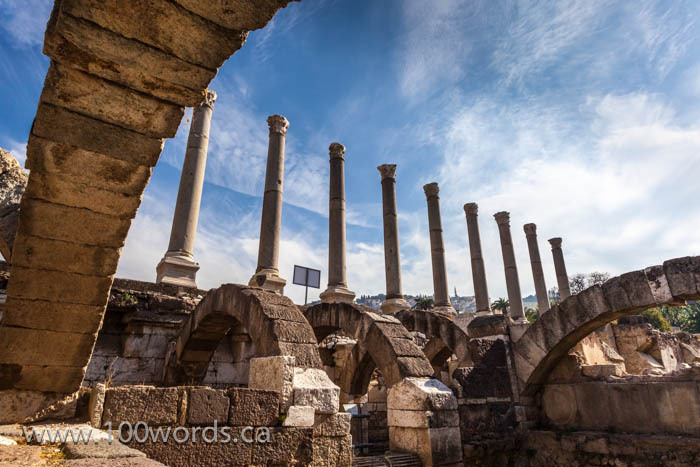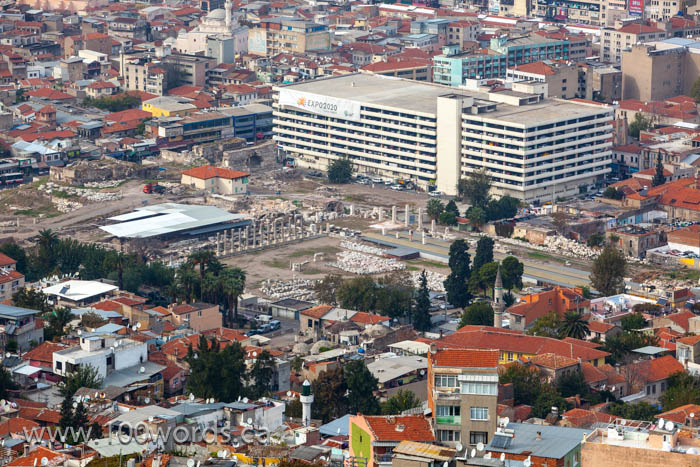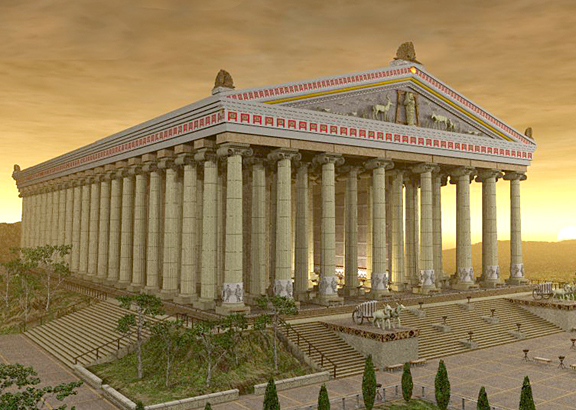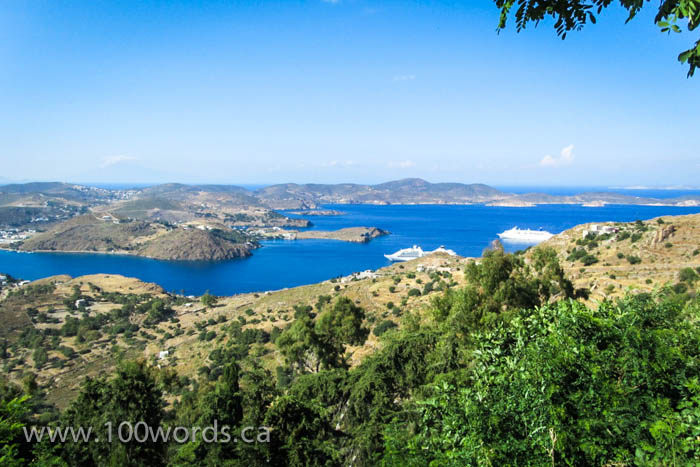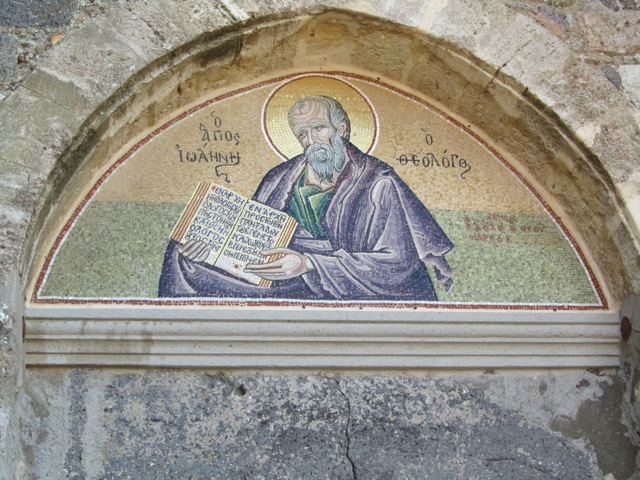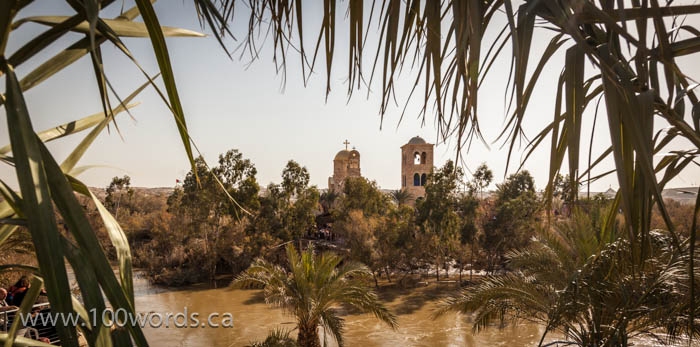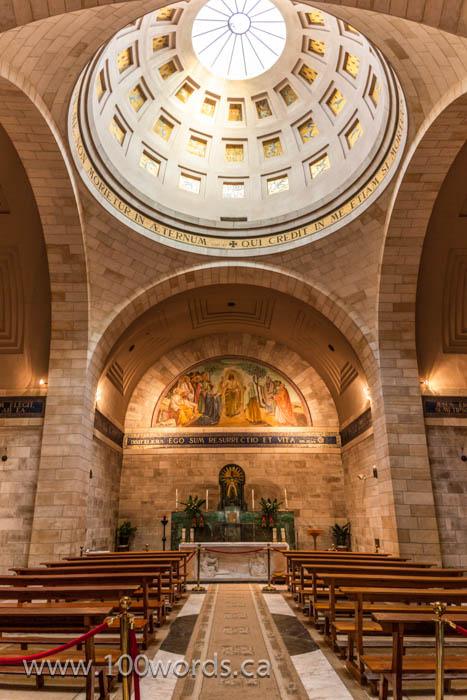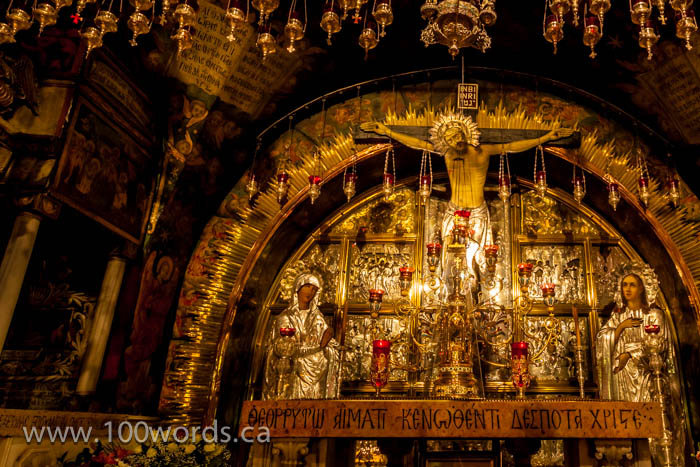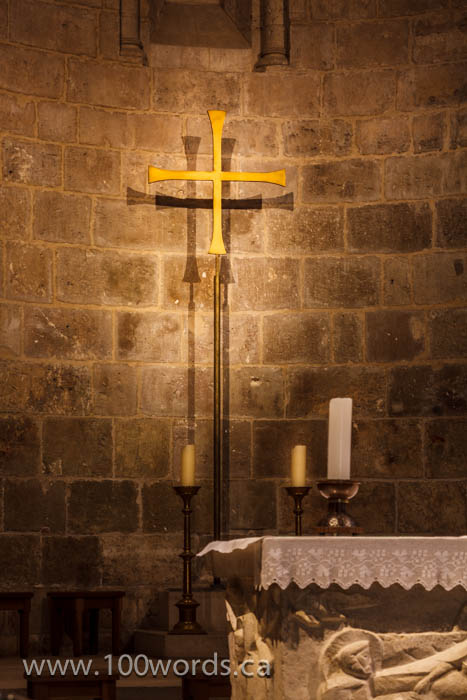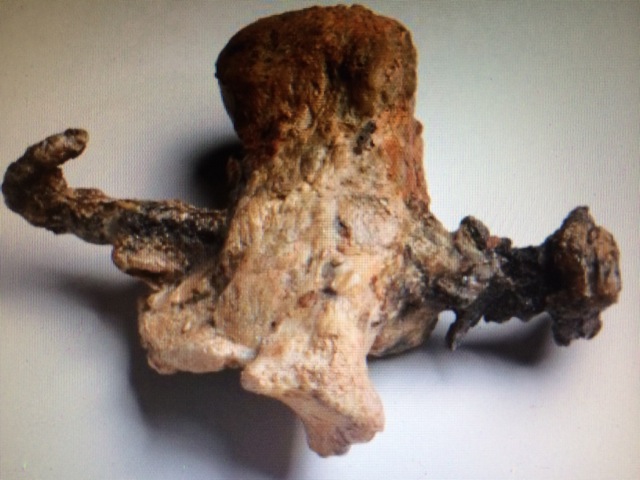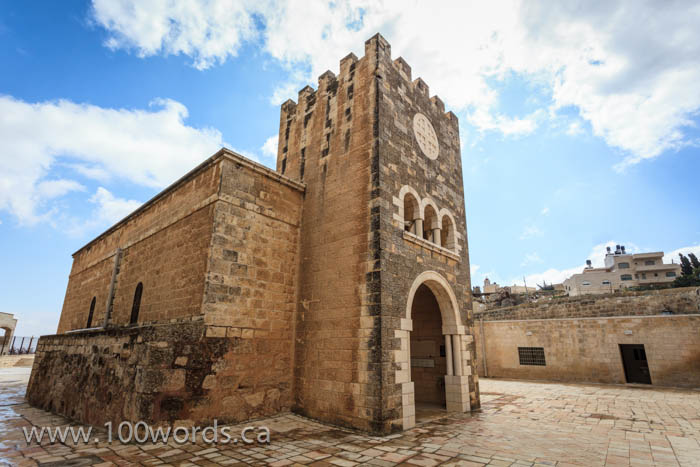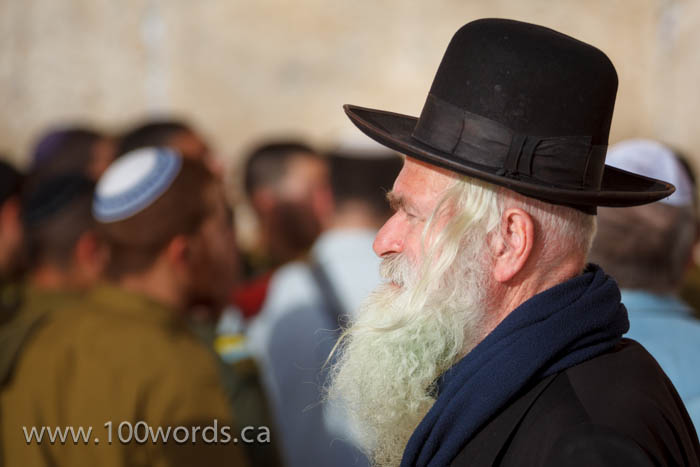PERGAMOS
Today’s Reading: Revelation 2:12-17
Click scripture link to read online or HERE to listen online (then click the symbol of the audio speaker above the scripture portion).
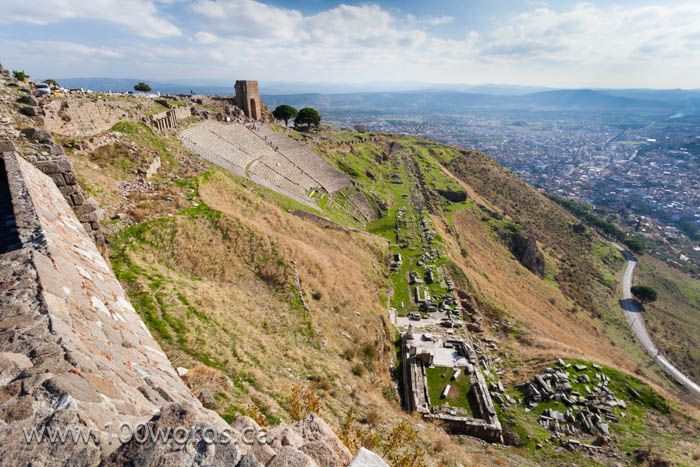
You can see on the slopes of the hill ruins of the theatre in Pergamos. My son, David Reynold, says that acoustics were so good that a whisper on stage could be heard all the way to the top row. In the middle of the photo, the long plateau path was once a building which led to the pagan temple (its ruins can be seen at the bottom of the photo). Today’s reading speaks of “Satan’s throne.” Satan occupied these temples in order to receive the worship which he had coveted in Heaven before he was cast down to the earth. In Luke 10:18 we read the words of Jesus, “I beheld Satan fall like lightening from Heaven.” Did Satan make this city the centre of his activities here on earth?
GOOGLE MAPS – To see where the photo was taken, click HERE.
Key Verse: Revelation 2:17
He who has an ear, let him hear what the Spirit says to the churches. To him who overcomes I will give some of the hidden manna to eat. And I will give him a white stone, and on the stone a new name written which no one knows except him who receives it.
Some believers in this church were being swept into the vortex of compromise with pagan practises. The “Doctrine of Balaam” was one of prostituting the prophetic gift for financial gain (Numbers 22:1-8). There are two temptations which Satan used then and now…1) coveting money, and 2) sex outside of a one-man, one-woman relationship of holy matrimony. The “Doctrine of the Nicolaitans” was that one could worship the true God and also participate in pagan temple rituals (offering sacrifices to idols and engaging sexually with the temple prostitutes). It is believed that most of the followers of Jesus Christ in Pergamos were not Jews, but Gentiles, former Pagans. The published decision of the Jerusalem church leaders for non-Jewish believers in Jesus is found in Acts 15:22-29. They did not insist that non-Jewish believers become converts to Judaism, nor did they put doctrines such as Sabbath (Saturday) keeping, etc., on them. They wrote of what they considered “necessary things.” “Abstain from things offered to idols, from blood, from things strangled, and from sexual immorality”… period. We must not let the legalists bring those of us who are non-Jews under bondage. This decision by the Jewish mother church in Jerusalem may have been directed specifically to Pergamos. Of course it was applicable to all the churches, but at that time most believers in Jesus were Jews, and the Apostles and almost all the Christian Pastors all over the world were Jewish.
What a great promise Jesus made to the ones who “overcome!” In the games played in the great stadia of the Greek and Roman world, a “white stone” was given to those who excelled in their sport. Their names were inscribed on the stone, and it could be used for free access to the stadia for all events. According to our key verse, we who overcome have special access to all God’s blessings! The “hidden manna” is God’s special treat for His people; just what we need and want for spiritual nutrition.
PRAYER FOR TODAY:
Lord God, as I read twice in today’s reading, Your Word is as a sharp sword. May Your Word cut away from me anything displeasing to You. I pray daily for the grace of a repentant heart and mind. Deliver me from the evil doctrines of Balaam and of the Nicolaitans. In the Name of my Saviour and Lord Jesus Christ I pray. Amen!!!
100 PERSONAL WORDS:
Again today I’m reminded of the importance of encountering that sharp two-edged Sword, which is the “Word of God,” every day without fail (Hebrews 4:12-16). I understand that the pagan temple in Pergamos had at its centre an image of Asklepios, the so-called god of healing. Unthinkable things took place there with temple prostitutes, and those seeking healing would spend a night on the floor of the temple where non-poisonous snakes would be released by the priests to crawl over them, believing that this would cure them. The medical symbol of today may relate to this, but I prefer to believe it comes from the time when God told Moses to put a brass serpent image on a pole, and those who had been bitten by poisonous snakes would be healed. Satan, that snake in the Garden of Eden, was rendered powerless through the suffering of the Cross of Christ. Isaiah wrote, “By His stripes we are healed” (Isaiah 53:4-6). The Apostle Matthew referred to Isaiah in (Matthew 8:14-17). Peter referred also to Isaiah’s prophecy of healing in Christ (1 Peter 2:21-25). It was Peter’s mother-in-law’s healing by Jesus which Matthew recorded.
Yours for the blessings promised “to him that overcomes”,
David
P.S. I must not let this go without mentioning the martyr of Pergamos, Antipas. He is surely worthy of honour. I plan, God willing, to meet Antipas some day and find out more about his testimony, which resulted in his death at the hands of the Roman authorities.
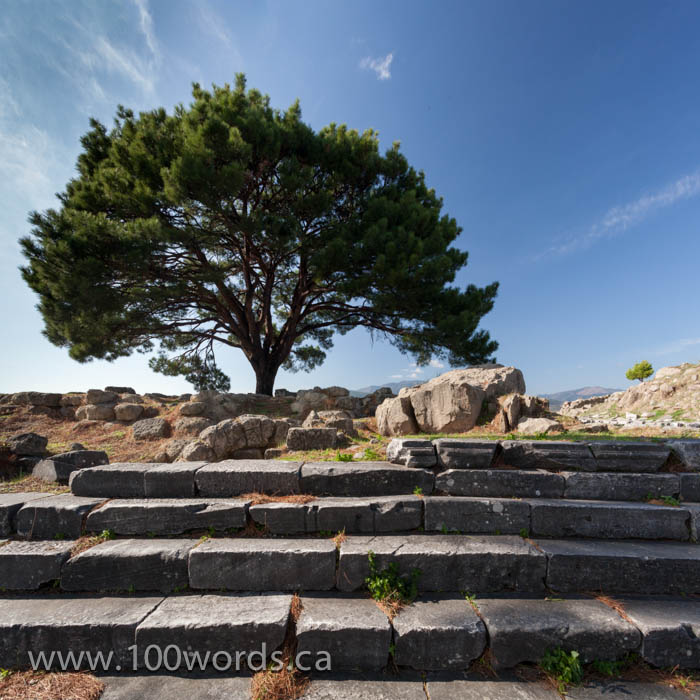
The Altar of Zeus was built by Eumenes II to commemorate a great victory over the Gauls (Galatians) in Pontus and Bithynia in 229-228 BC. The open-air altar (not a temple) was about 100 feet long and 35 feet high, and it was decorated with life-sized figures depicting a battle between gods and giants. The great altar, which was included on some lists of the world’s wonders, was destroyed during the Byzantine era and the remains were used to repair the acropolis defense walls. In the 19th century these fragments were removed to the Pergamon Museum in Berlin, Germany, and used in a full-scale reconstruction of the temple. It’s very possible that “Satan’s throne” moved to Berlin during the Nazi era. Satan hates Jews, for through the Jewish people we have received the Word of God, our Lord and Saviour Jesus, and the Apostles and true Prophets of God, hence anti-semitism.

